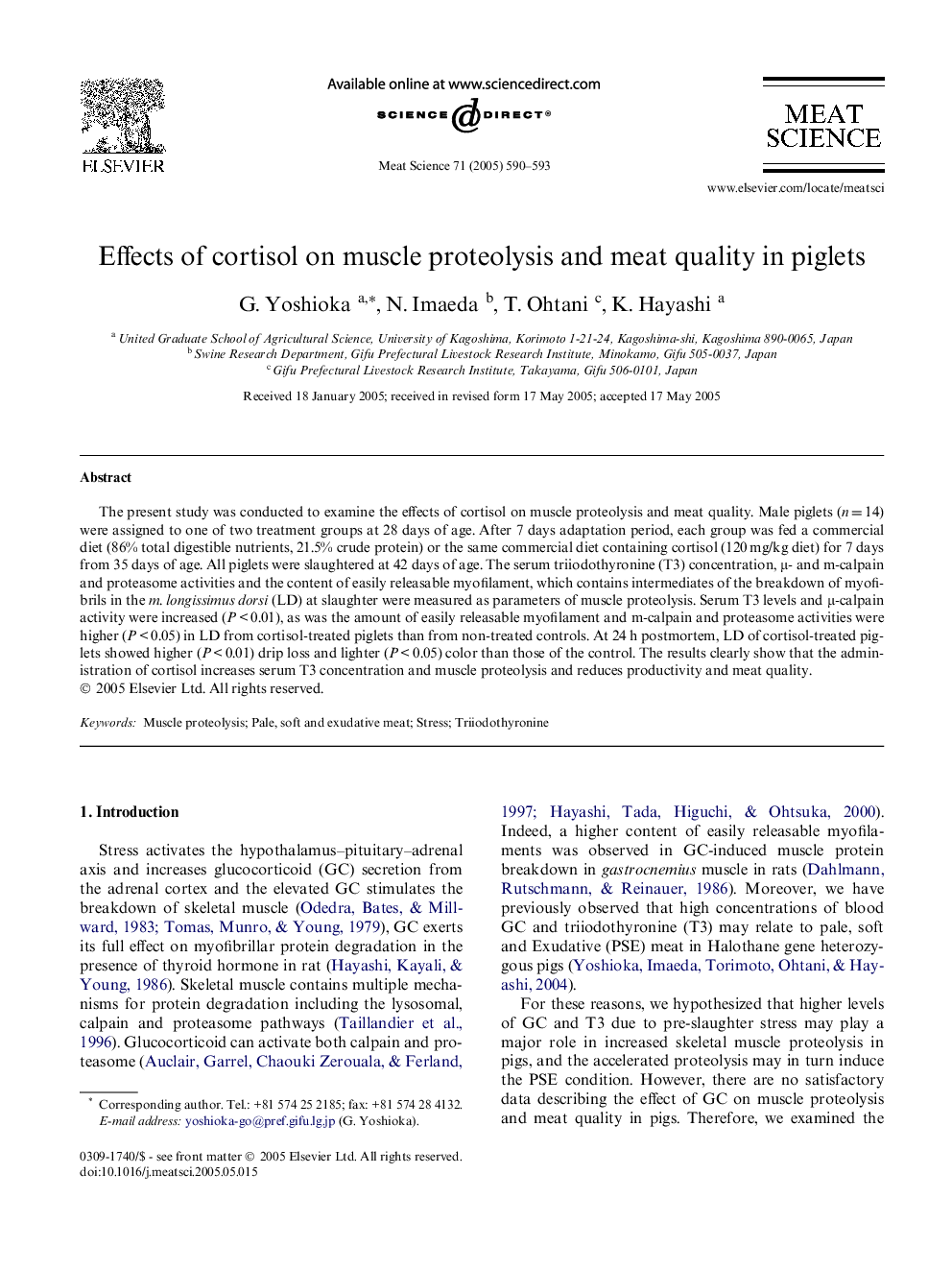| Article ID | Journal | Published Year | Pages | File Type |
|---|---|---|---|---|
| 8983555 | Meat Science | 2005 | 4 Pages |
Abstract
The present study was conducted to examine the effects of cortisol on muscle proteolysis and meat quality. Male piglets (n = 14) were assigned to one of two treatment groups at 28 days of age. After 7 days adaptation period, each group was fed a commercial diet (86% total digestible nutrients, 21.5% crude protein) or the same commercial diet containing cortisol (120 mg/kg diet) for 7 days from 35 days of age. All piglets were slaughtered at 42 days of age. The serum triiodothyronine (T3) concentration, μ- and m-calpain and proteasome activities and the content of easily releasable myofilament, which contains intermediates of the breakdown of myofibrils in the m. longissimus dorsi (LD) at slaughter were measured as parameters of muscle proteolysis. Serum T3 levels and μ-calpain activity were increased (P < 0.01), as was the amount of easily releasable myofilament and m-calpain and proteasome activities were higher (P < 0.05) in LD from cortisol-treated piglets than from non-treated controls. At 24 h postmortem, LD of cortisol-treated piglets showed higher (P < 0.01) drip loss and lighter (P < 0.05) color than those of the control. The results clearly show that the administration of cortisol increases serum T3 concentration and muscle proteolysis and reduces productivity and meat quality.
Related Topics
Life Sciences
Agricultural and Biological Sciences
Food Science
Authors
G. Yoshioka, N. Imaeda, T. Ohtani, K. Hayashi,
